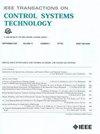Reinforcement Learning-Based Evolving Flight Controller for Fixed-Wing Uncrewed Aircraft
IF 3.9
2区 计算机科学
Q1 AUTOMATION & CONTROL SYSTEMS
引用次数: 0
Abstract
A significant challenge in designing flight controllers lies in their dependency on the quality of dynamic models. This research explores the potential of artificial intelligence-based flight controllers to generalize control actions around policies rather than relying solely on the accuracy of dynamic models. An engineering-level, low-fidelity, linearized model of fixed-wing uncrewed aircraft is used to train a multi-input multi-output (MIMO) flight controller, employing the deep deterministic policy gradients (DDPG) algorithm, to maintain cruise velocity and altitude. While existing literature often concentrates on simulation-based assessments of reinforcement learning (RL)-based flight controllers, this research employs an extensive flight test campaign including 15 flight tests to explore the reliability, robustness, and generalization capability of RL algorithms in tasks they were not specifically trained for, such as changing cruise altitude and velocity. The RL controller outperformed a well-tuned linear quadratic regulator (LQR) on several control tasks. Furthermore, a modification in the DDPG algorithm is presented to enhance the ability of RL controllers to evolve through experience gained from actual flights. The evolved controllers present different behavior compared to the original controller. Comparative flight tests underscored the crucial role of the ratio of actual flight data to the number of simulation-based training instances in optimizing the evolved controllers.基于强化学习的固定翼无人飞机演化飞行控制器
设计飞行控制器的一个重大挑战在于其对动态模型质量的依赖。本研究探索了基于人工智能的飞行控制器的潜力,以围绕策略推广控制行动,而不是仅仅依赖于动态模型的准确性。采用工程级、低保真、线性化的固定翼无人飞机模型,采用深度确定性策略梯度(DDPG)算法训练多输入多输出(MIMO)飞行控制器,以保持巡航速度和高度。虽然现有文献通常集中在基于强化学习(RL)的飞行控制器的仿真评估上,但本研究采用了广泛的飞行测试活动,包括15次飞行测试,以探索RL算法在非专门训练任务(如改变巡航高度和速度)中的可靠性、鲁棒性和泛化能力。RL控制器在几个控制任务上优于经过良好调谐的线性二次型调节器(LQR)。此外,提出了对DDPG算法的改进,以增强RL控制器通过实际飞行经验进行进化的能力。与原始控制器相比,进化后的控制器表现出不同的行为。比较飞行试验强调了实际飞行数据与基于模拟的训练实例数量的比率在优化改进的控制器方面的关键作用。
本文章由计算机程序翻译,如有差异,请以英文原文为准。
求助全文
约1分钟内获得全文
求助全文
来源期刊

IEEE Transactions on Control Systems Technology
工程技术-工程:电子与电气
CiteScore
10.70
自引率
2.10%
发文量
218
审稿时长
6.7 months
期刊介绍:
The IEEE Transactions on Control Systems Technology publishes high quality technical papers on technological advances in control engineering. The word technology is from the Greek technologia. The modern meaning is a scientific method to achieve a practical purpose. Control Systems Technology includes all aspects of control engineering needed to implement practical control systems, from analysis and design, through simulation and hardware. A primary purpose of the IEEE Transactions on Control Systems Technology is to have an archival publication which will bridge the gap between theory and practice. Papers are published in the IEEE Transactions on Control System Technology which disclose significant new knowledge, exploratory developments, or practical applications in all aspects of technology needed to implement control systems, from analysis and design through simulation, and hardware.
 求助内容:
求助内容: 应助结果提醒方式:
应助结果提醒方式:


